Why Montessori?

Who is Dr. Maria Montessori?
Maria Montessori (August 31st, 1870–May 6th, 1952)
was an Italian physician and educator whose philosophy and approach remain fresh and modern one hundred years after her work began.
She was born in the provincial town of Chiaravalle, Italy. Beginning in early childhood, Maria lived and growing up in Rome. Maria opened the first Montessori school “The Casa dei Bambini” or “Children’s House” in Rome on January 6, 1907. She traveled the world and wrote so many books about her approach to education.
Beginning her work almost a century ago, Dr. Maria Montessori developed this educational approach based on her understanding of children’s natural learning tendencies as they unfold in “prepared environments” for multi-age groups.
Children educated in Montessori environments know who they are as people. They become very independent and are confident. They also can easily interact very well with peers and adults. Montessori students are naturally curious about their surroundings and eager to learn and explore.

Why Montessori?
There are some main differences between Montessori and Traditional education. Both models of education are beneficial to the children but there are some main differences between Montessori and Traditional way of learning. In Montessori learning environment, since the learning process is self-directed so the children can gain a sense of confidence and independence in their abilities much faster than a Traditional schools. Based on studies and researches, the children who are educated within a Montessori system are growing into capable people who will have a strong sense of self and are more prepared “Academically” and “Socially” than their peers. Montessori is thriving around the globe. However, the early years in Montessori Method are a critical time to set a strong foundation for who a child will become and the role she or he will play in the future.
Montessori vs. Traditional Education
- Mixed age grouping
- Self-directed
- Reality base
- Each child get individual or small group lesson
- Children can manage themselves
- Children think independently with more confident
- Teachers follow the individual learning path and needs of each child
- Focus is on the process
- Based on concrete learning
- Lessons are hand-on and active so students discover information for themselves
- Children learn to love learning
- Single /same age grouping
- Not self-directed
- Role-play/Fantasy
- Children get group lesson
- Children are depend to adults to do things for them
- Children are less independent with less confident
- Teachers set the same task for each child regardless of his or her learning capacity
- Focus is on the product
- Based on abstract learning
- Lessons are passive and often orated to students who listen passively, memorize and take tests.
- Children learn because it is mandatory





